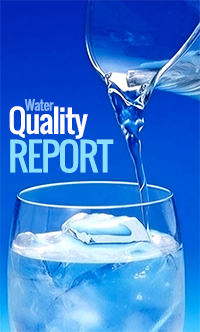My bill seems unusually high. Could I have a leak?
We ensure that your billing reflects the actual water that is used. Small leaks in your home can often go unnoticed and quickly add up. Following are a few things to consider:
Your toilet(s) – the most common cause of residential leaks. Look in the tank to make certain water is not going into the overflow pipe. You can also check for leaks from the tank to the bowl by putting 5 – 8 drops of food coloring in the tank without flushing – check in 30 minutes – if color shows up in the bowl, you have a leak that needs to be repaired.
Indoor/Outdoor faucets – Check for drips. Replace worn gaskets and washers.
Dishwasher/Clothes Washer – Look for drips or stains under or behind these appliances.
Outside Spigots/Sprinkler Systems – Check for drips, damaged sprinkler heads and system leaks.
Water Heaters – Check for any water around base.
Number of People – Have you had extra company during the meter reading cycle dates? People usually have different water habits, for example: one may take an 8 minute shower (17 gallons), another may take a 45 minute shower (95 gallons) – that’s a 78 gallon difference!
Why are Sewer and Garbage (sanitation) charges on my water bill?
No one likes getting a lot of bills. We have agreements with the City of Lebanon and Marion County Fiscal Court to collect charges for Sewer and Garbage, respectively. By combining bills, these three companies are able to hold down postage costs, which helps us be more efficient and saves you money.
When I fill up my swimming pool, can I get an adjustment on my bill?
No – The Lebanon Water Works Company and the City of Lebanon do not offer adjustments on your bill for filling swimming pools. By the time treated water is coming out of your garden hose to fill your pool, our cost is factored in.
How hard is my water?
The natural presence of minerals in water, particularly calcium and magnesium, can cause it to become ‘hard.’ The more minerals there are in the water, the ‘harder’ it will become.
Water with less than 60 parts per million is considered to be ‘soft,’ anything between 60 and 120 parts per million is considered ‘medium-hard,’ and anything beyond 120 parts per million is considered ‘hard.’ Water supplied by Lebanon Water Works Company has an average hardness of 120 – 200 parts per million.
Why does my water have a strong smell?
Strong odor may be caused by seasonal turnover of our water source at Fagan Branch Reservoir. It may also occur if your meter is at the end of one of our lines or on a line that has little usage. If your water has a strong odor give us a call.
Why does my tap water look milky sometimes?
The milky appearance is actually air bubbles, which are harmless. There are occasions when additional air is introduced into the water lines when we make repairs. Also, in the winter when the outside temperature drops, the water lines get cold and so does the water inside. When that cold water is brought inside your warm house, oxygen in the water is released into the waterline as tiny air bubbles. The air bubbles should disappear quickly, but should you continue to have a problem give us a call.
What causes a loss of pressure or flow?
A leak on your lines will cause a loss of both pressure and normal flow. Also, if you have a pressure regulator valve, it may not be operating properly. If you have checked for a leak, and it appears that you do not have one, you may also check your regulator. A Water Company leak will normally affect everyone in the general area. So it may be useful to check with neighbors to see if they’re having similar issues. If you find that to be true, please contact us as soon as possible.
When do you read my meter? I never see anyone at my meter. Do you just estimate the bill?
We read every meter. Every month. Usually around the same time (15th to the 18th of each month). Thanks to technology, we no longer have to get out and manually read each meter. There are about 2,600 meters in our system that are radio read meters which are equipped with technology that allows us to just drive by to get the monthly reading.
Are there any contaminants in my drinking water?
All drinking water, including bottled water, contains minuscule amounts of contaminants. The presence of these contaminants does not actually pose risks to your health. To view more about contaminant levels in your drinking water please view our current CCR by clicking here.
What do I need to do during a boil water advisory?
A boil water advisory is issued when there is POSSIBLE contamination to the water. We will inform you through media and/or hand delivered notices should an advisory be needed. During an advisory, customers should boil their drinking water until the advisory is lifted. The advisory would typically last no longer than 48 hours from the time it is issued. If you have questions during one of these events, please feel free to call us.
How much am I responsible for?
The customer is responsible for his/her service line from the point of connection to our meter. The Lebanon Water Works Company retains ownership of the meter and appurtenances and will fix and maintain the meter but the customer is responsible from the point of connection.
It appears I have a leak at my meter. Am I responsible?
Sometimes with leaks at the meter it can get a little confusing as to who is responsible. A good rule of thumb is that if the leak indicator is spinning that means that water is traveling through the meter onto the customer’s side and that the customer is responsible. If the leak indicator is not spinning make sure to contact us and let us know. Call anytime there is a leak at the meter if you are not sure.


